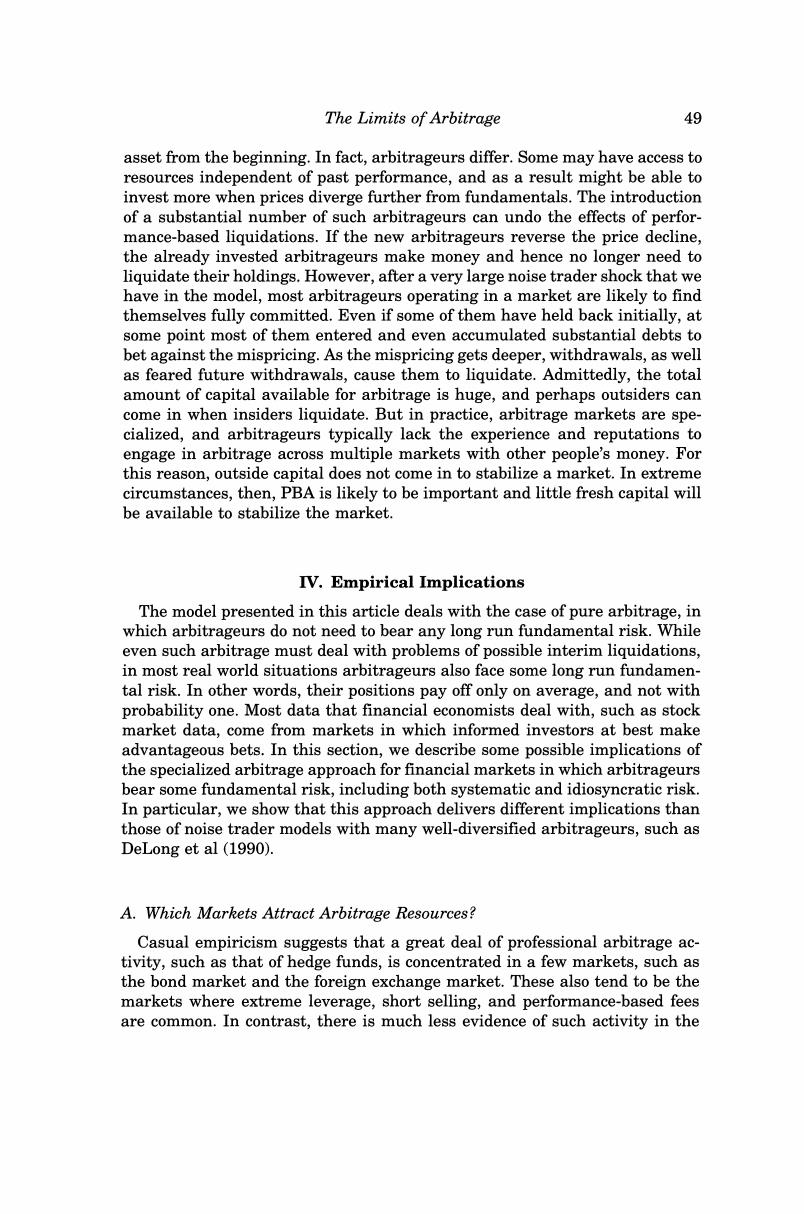正在加载图片...

The Limits of Arbitrage 49 asset from the beginning.In fact,arbitrageurs differ.Some may have access to resources independent of past performance,and as a result might be able to invest more when prices diverge further from fundamentals.The introduction of a substantial number of such arbitrageurs can undo the effects of perfor- mance-based liquidations.If the new arbitrageurs reverse the price decline, the already invested arbitrageurs make money and hence no longer need to liquidate their holdings.However,after a very large noise trader shock that we have in the model,most arbitrageurs operating in a market are likely to find themselves fully committed.Even if some of them have held back initially,at some point most of them entered and even accumulated substantial debts to bet against the mispricing.As the mispricing gets deeper,withdrawals,as well as feared future withdrawals,cause them to liquidate.Admittedly,the total amount of capital available for arbitrage is huge,and perhaps outsiders can come in when insiders liquidate.But in practice,arbitrage markets are spe- cialized,and arbitrageurs typically lack the experience and reputations to engage in arbitrage across multiple markets with other people's money.For this reason,outside capital does not come in to stabilize a market.In extreme circumstances,then,PBA is likely to be important and little fresh capital will be available to stabilize the market. TV.Empirical Implications The model presented in this article deals with the case of pure arbitrage,in which arbitrageurs do not need to bear any long run fundamental risk.While even such arbitrage must deal with problems of possible interim liquidations, in most real world situations arbitrageurs also face some long run fundamen- tal risk.In other words,their positions pay off only on average,and not with probability one.Most data that financial economists deal with,such as stock market data,come from markets in which informed investors at best make advantageous bets.In this section,we describe some possible implications of the specialized arbitrage approach for financial markets in which arbitrageurs bear some fundamental risk,including both systematic and idiosyncratic risk. In particular,we show that this approach delivers different implications than those of noise trader models with many well-diversified arbitrageurs,such as DeLong et al(1990). A.Which Markets Attract Arbitrage Resources? Casual empiricism suggests that a great deal of professional arbitrage ac- tivity,such as that of hedge funds,is concentrated in a few markets,such as the bond market and the foreign exchange market.These also tend to be the markets where extreme leverage,short selling,and performance-based fees are common.In contrast,there is much less evidence of such activity in the